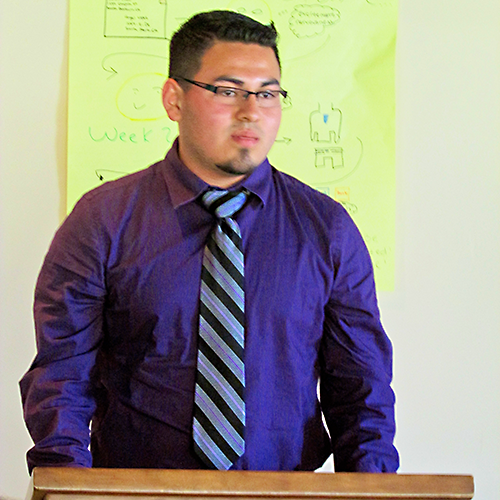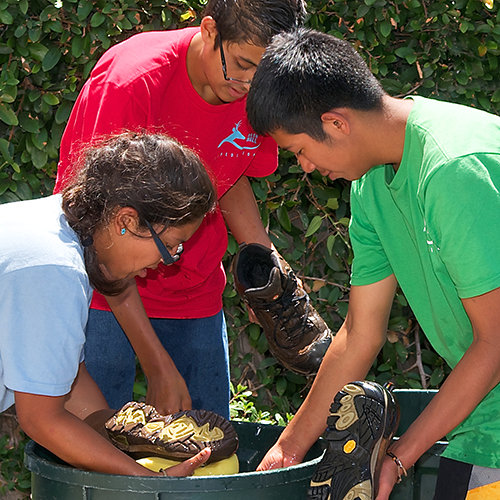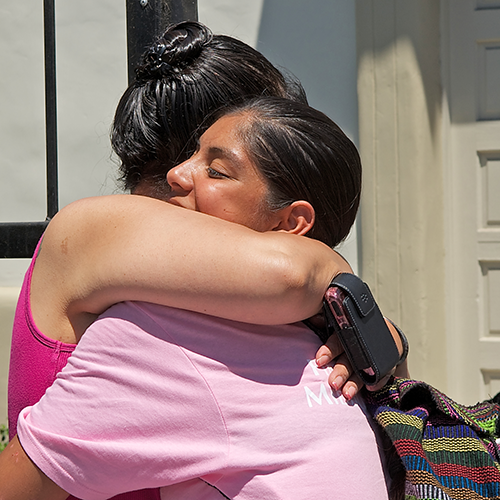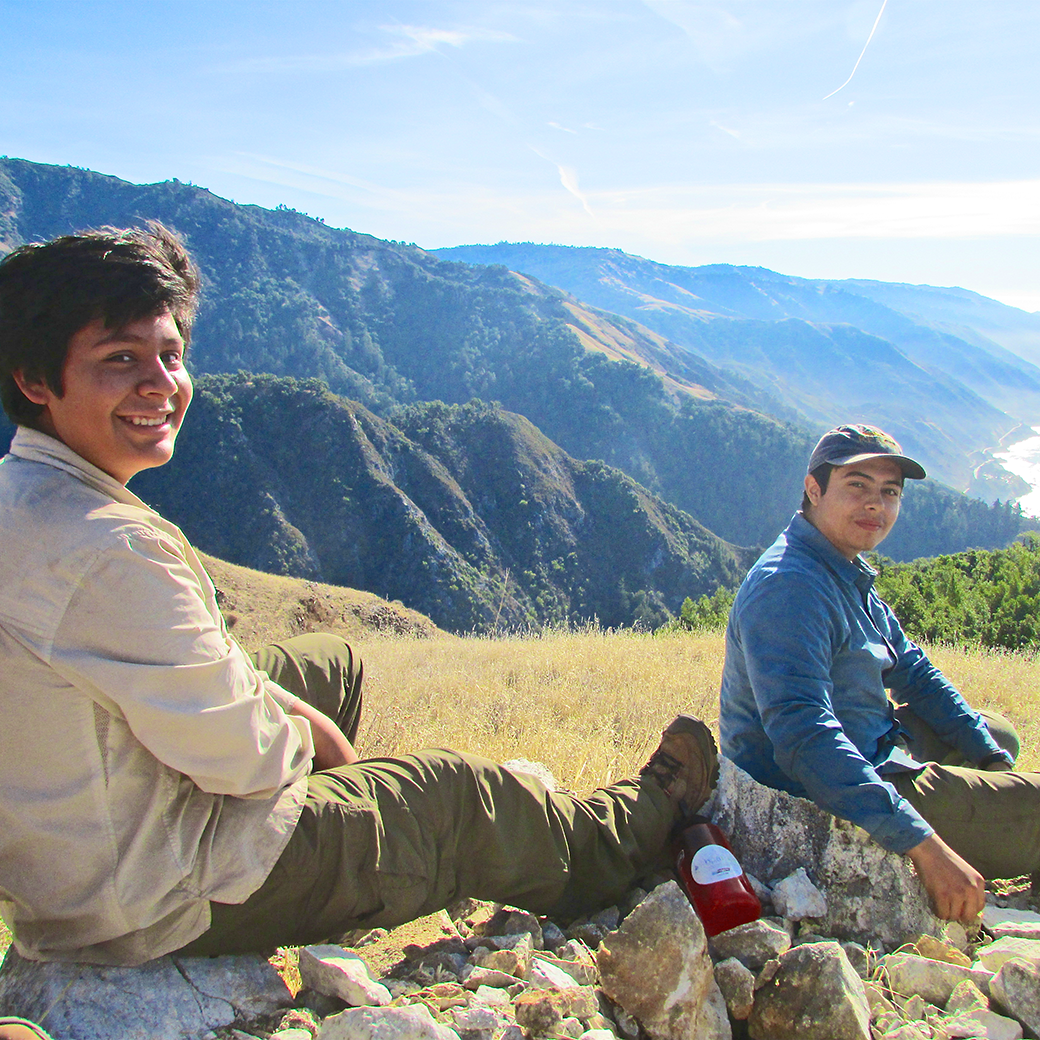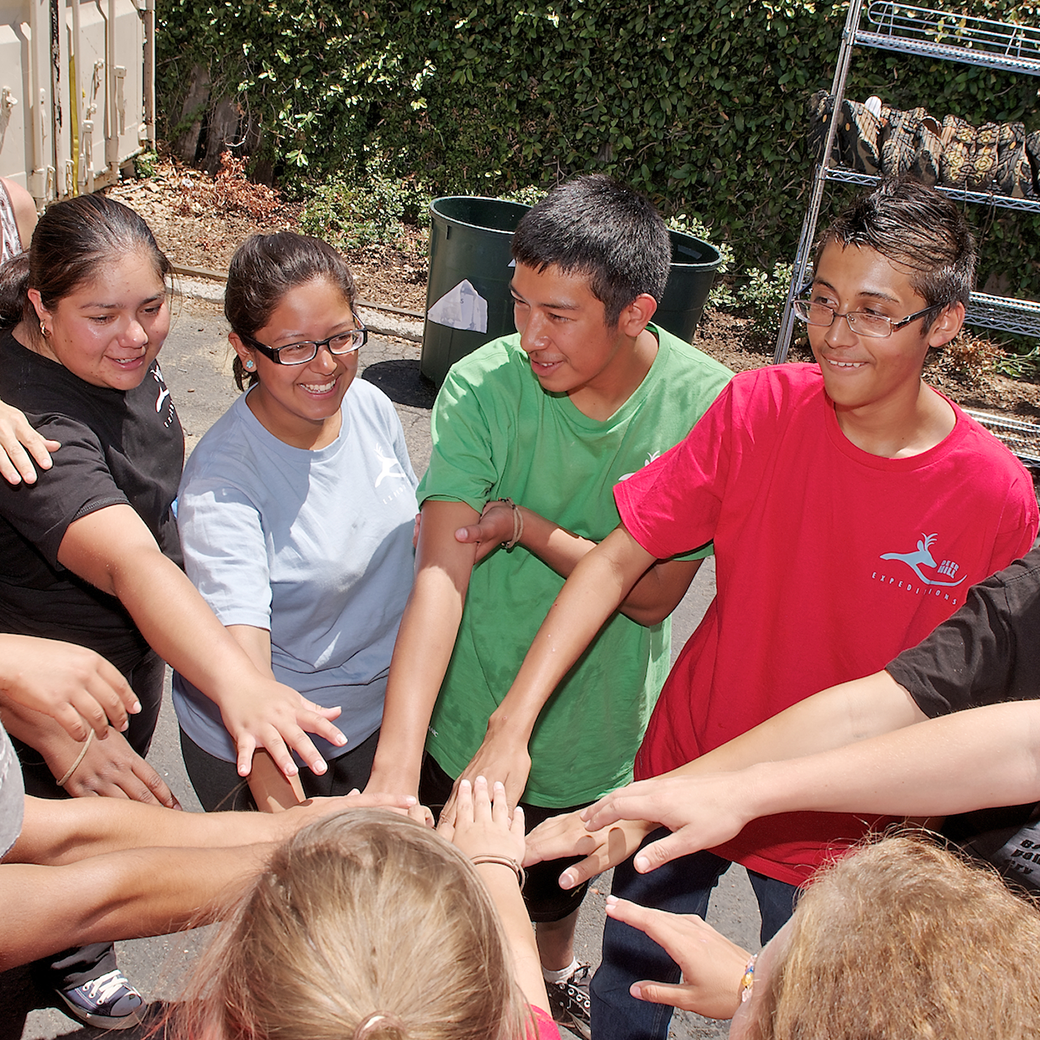Students from low-income families, however successful in high school, are disproportionately unlikely to enroll in college, and those that do enroll face far more hurdles en route to graduation. The REACH program began by exploring whether long-term experiential mentoring, focused primarily on non-academic skills and spanning the final two years of high school and the two years thereafter, could not only help these students get into college, but help them thrive throughout the transition to adulthood.
EDITOR’S NOTE: ALTHOUGH THE ORFALEA FUND HAS RETIRED, AS OF 2018, REACH CONTINUES AS A 2.5 YEAR PROGRAM. LEARN MORE AT WWW.REACHFELLOWSHIP.ORG.
Allow us a metaphor. Tightrope walkers practice for years before they stand fifty feet in the air without a safety net. They are mentally and physically prepared for the challenge ahead of them. Having never set foot on a tightrope, with or without a net, we can confidently say we would not approach the task with confidence.
Yet this is the expectation of low-income students as they finish high school. Their more affluent peers have been told for years, “You have to take healthy risks and put yourself out there in order to succeed. Go out on that high wire. It’s scary, but you’ll get more comfortable the more you do it and we’ve got this emotional, social and financial safety net to support you when you fall.”
They learn to network, take advantage of resources, ask for help, and grow accustomed to the challenge. This is not the reality for low-income students, who have not had the opportunity to practice and build confidence. Opportunities for them to walk the high wire are few and far between. So how can we be shocked when an academically talented low-income student doesn’t want to pursue a college education, to walk out on the high wire without a net? 24% of the undergraduate population consists of low income, first generation students, but after six years, only 11% have earned bachelor’s degrees, compared to 55% of their more advantaged peers.
Launched by the Orfalea Foundation in 2011 and using a unique combination of experiential education, mentoring, and post secondary skill development, REACH (an acronym for Resilience, Education, Adventure, Community and Health) conducted a four-year program to prepare students from low-income families for lives of purposeful action, continuous learning, and the courageous pursuit of opportunity.
We did so by pairing underserved students in Santa Barbara County with mentors and subject matter experts to guide them through six core areas:
- Post Secondary Education, to help students choose, plan, and act on a post-high-school educational path
- Outdoor Experiences, such as climbing Mount Whitney, to build confidence and competence in real-world problem solving, teamwork, and physical and mental conditioning
- Health and Wellness, to ensure students entered adulthood with a solid understanding of the role of nutrition and physical activity in their daily lives and long-term health and happiness
- Financial Literacy, to help students master the myriad ways income, debt, and investments limit or expand their opportunities over time
- Community Development, to help students appreciate the personal, professional, and community benefits of working for and with others
- Personal Development, to show students how emotional intelligence can help them thrive at home, at work, and out in the world
100% of our students say they’ve improved the following because of REACH:
- Ability to Problem Solve
- Ability to Plan and Set Goals
- Desire to Learn
- Self Confidence
What is the value of improved self-confidence, planning, goal setting, and problem solving when going through massive life changes? And what is required to achieve these improvements?
For our first two cohorts, the REACH journey included an average 2,220 hours of program contact time, beginning with a three-week wilderness adventure, and then guiding students through SAT prep courses, outdoor adventures, life skills workshops (cooking, shopping, credit card management, etc.), and monthly online mentoring sessions in college, all culminating in a cross cultural exchange in the highlands of Ecuador, which also served as an incentive to complete the program.
Upon completion of the program, 53% attended 4-year colleges and 44% attended two-year colleges, with 26% of the latter scheduled to transfer to 4-year institutions. Also interesting to Youth Development practitioners is the fact that REACH experienced extraordinary attendance and retention rates even after the transition from high school to college, with over 87% of our students completing the entire four-year program.
